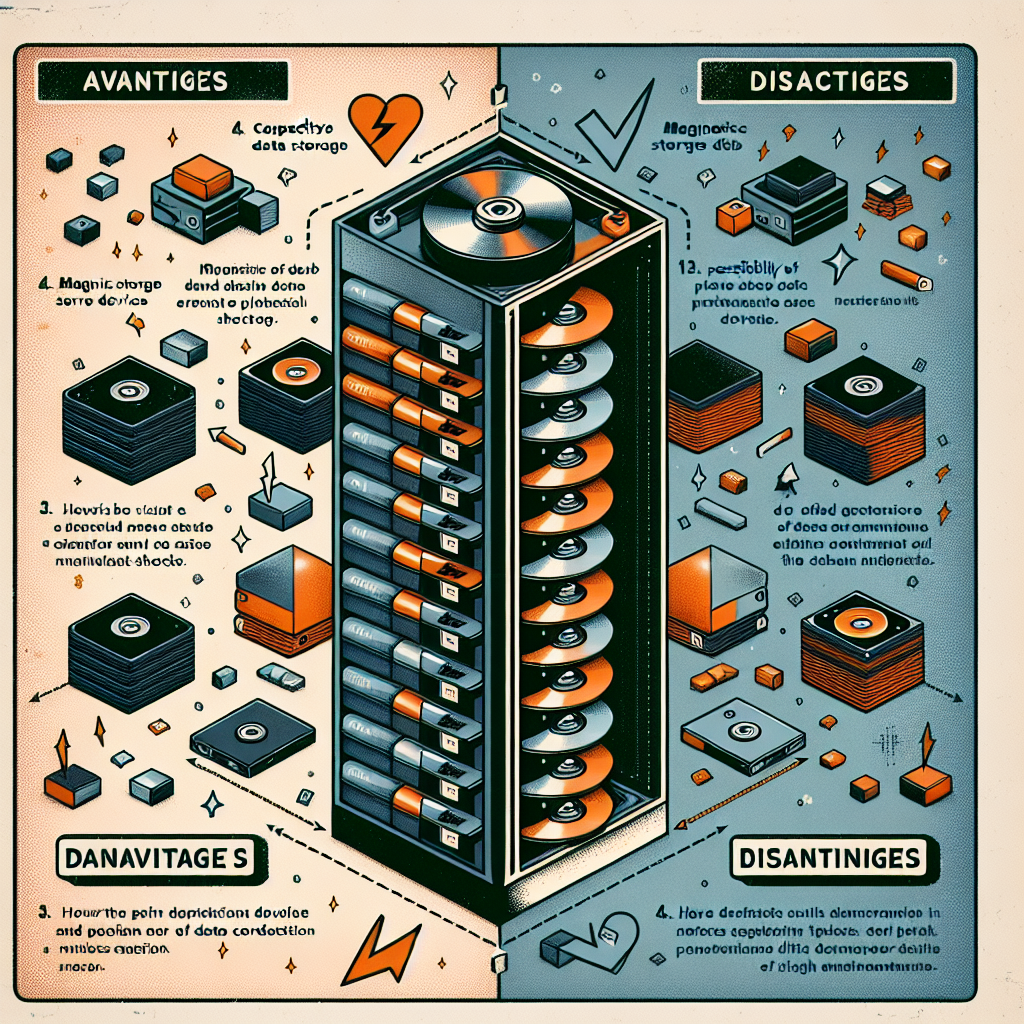Advantages and Disadvantages of Magnetic Storage Devices
Magnetic storage devices, such as hard drives and magnetic tapes, have been a staple in the world of data storage for decades. These devices use magnetized particles to store data, making them a reliable and cost-effective option for storing large amounts of information. However, like any technology, magnetic storage devices come with their own set of advantages and disadvantages.
Advantages:
1. Cost-effective: Magnetic storage devices are typically more affordable than other forms of storage, such as solid-state drives. This makes them a popular choice for organizations and individuals looking to store large amounts of data without breaking the bank.
2. High capacity: Magnetic storage devices have the ability to store a large amount of data in a relatively small space. This makes them ideal for storing media files, documents, and other large files that require a lot of storage space.
3. Durability: Magnetic storage devices are known for their durability and reliability. They can withstand physical shocks and vibrations, making them a good choice for storing data in harsh environments.
4. Longevity: Magnetic storage devices have a long lifespan, with some hard drives lasting for several years without any issues. This makes them a practical choice for long-term data storage.
Disadvantages:
1. Slower access speeds: Magnetic storage devices tend to have slower access speeds compared to solid-state drives. This can result in slower performance when accessing and transferring data, especially for large files.
2. Prone to data loss: Magnetic storage devices are susceptible to data loss due to physical damage or magnetic interference. This can result in the loss of important data if the device is not properly maintained or protected.
3. Limited lifespan: While magnetic storage devices are known for their durability, they do have a limited lifespan. Over time, the magnetic particles used to store data can degrade, leading to data corruption and potential data loss.
4. Size and weight: Magnetic storage devices are typically larger and heavier than solid-state drives, making them less portable and convenient for on-the-go storage needs.
In conclusion, magnetic storage devices have their own set of advantages and disadvantages. While they are a cost-effective and reliable option for storing large amounts of data, they may not be the best choice for users looking for high-speed performance or portability. It is important to consider these factors when choosing a storage solution that best fits your needs.


